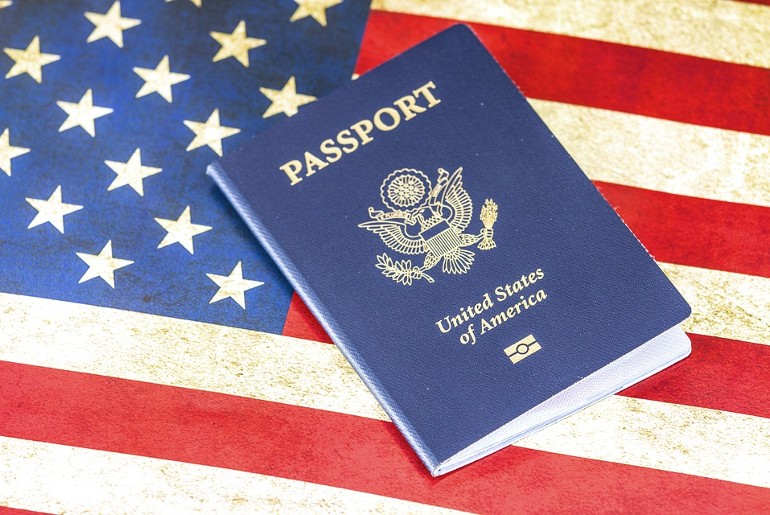US Citizenship & Immigration Services (USCIS) extends the stay using the ‘International Entrepreneur Rule’ (IER)
San Francisco, NFAPost: U.S. Citizenship and Immigration Services (USCIS), the government agency that oversees lawful immigration to the United States, has made it easy for business owners and entrepreneurs to extend their stay for five years using the ‘International Entrepreneur Rule’ (IER).
As per the programme which started during the Obama dispensation, entrepreneurs from outside US were initially allowed to stay in the country for two-and-a-half years. USCIS new guideline states said that entrepreneurs from outside the US can remain for up to five years if their ventures meet specific criteria.
According to Arvian Research, the USCIS’s International Entrepreneur Rule (IER), administered by the Department of Homeland Security (DHS), lets noncitizen entrepreneurs apply for authorised stay in the United States, known as “parole,” based on demonstrating significant public benefit through their business ventures.
“This allows them to work exclusively for their startup. Eligibility extends to the entrepreneur’s spouse, but not their children, who may also be paroled. It is an opportune time for Indian entrepreneurs to make use of this benefit for their larger business expansion,” said Arvian Research.
United States would provide a significant public benefit through their business venture and they merit a favourable exercise of discretion. The threshold criteria and key elements of the International Entrepreneur Rule include:
- Entrepreneurs may be either living abroad or already in the United States.
- Start-up entities must have been formed in the United States within the past five years.
- Start-up entities must demonstrate substantial potential for rapid growth and job creation by showing at least $264,147 in qualified investments from qualifying investors, at least $105,659 in qualified government awards or grants, or alternative evidence.
- The spouse of the entrepreneur may apply for employment authorization after being paroled into the United States. (Children are not eligible for employment authorization.)
- The entrepreneur may be granted an initial parole period of up to 2½ years. If approved for re-parole, based on additional benchmarks in funding, job creation, or revenue described below, the entrepreneur may receive up to another 2½ years, for a maximum of 5 years. (At that point or earlier, there are other Options for Noncitizen Entrepreneurs to Work in the United States.)
- Up to 3 entrepreneurs per start-up can be eligible for parole under the International Entrepreneur Rule.
The startup must be a U.S. business entity that is lawfully conducting business in the United States and was formed within the 5 years immediately preceding the application for initial parole. It must also have substantial potential for rapid growth and job creation.
Additionally, as per the law, the spouse of the entrepreneur may seek employment authorization after entering the US under parole conditions. However, this provision does not apply to their children.
To qualify under the International Entrepreneur Rule (IER) for stay in the United States, you must fulfill specific ownership and operational roles within your startup entity. Here are the key requirements:
Ownership and Role Requirements
- Ownership: You must possess substantial ownership in the startup, which is considered at least 10% at the time of the initial application’s evaluation
- Role: You must play a central and active role in the day-to-day operations and decision-making processes of the startup.
How to Apply as an Entrepreneur
Filing Form I-941, Application for Entrepreneur Parole
- You must file Form I-941, Application for Entrepreneur Parole, with the required fee and supporting documentary according to the Form I-941 instructions. The filing fee for Form I-941 is $1,200.
- Filing and obtaining approval of a Form I-941 under this rule will not, by itself, constitute a grant of parole. If your Form I-941 is conditionally approved and you are outside the United States, you must visit a U.S. embassy or consulate abroad to complete parole processing and obtain travel documentation (for example, a boarding foil) before appearing at a U.S. port of entry for a final parole determination. If your Form I-941 is approved and you are within the United States, you will be mailed travel documentation to the U.S. address listed on your Form I-941, unless you requested to receive the travel documentation through a U.S. embassy or consulate abroad. You would have to depart the United States before appearing at a U.S. port of entry using your travel documentation for a final parole determination. A Canadian national traveling directly from Canada to a U.S. port of entry may present an approved Form I-941 at the U.S. port of entry without first obtaining travel documentation.
- You (as the Form I-941 applicant) do not need to file a Form I-765 to obtain employment authorization. If your Form I-941 is approved and you are paroled into the United States under the International Entrepreneur Rule after appearing at a U.S. port of entry, you are employment authorized for your start-up entity incident to the grant of parole.
- You (as the Form I-941 applicant) do not need to file a Form I-131 to obtain travel documentation. If your Form I-941 is approved, USCIS will provide you with further instructions for obtaining and using your travel documentation dependent on whether you selected to receive your travel documentation at your U.S. mailing address or at a U.S. embassy or consulate abroad.
IMPORTANT: If you are requesting to receive your travel document at your U.S. mailing address, please note that the I-512L Advance Parole document is a secure document that will only be sent to you at the U.S. mailing address you provided in your Form I-941 application. If you are represented by an attorney, an extra copy will not be sent to your attorney. Please ensure that your U.S. mailing address is correct, including any apartment, floor, or suite number if applicable, as well as providing any “In Care of Name” information, if any.
If you are requesting to receive your travel documentation through a U.S. embassy or consulate, please ensure your phone number and e-mail address are included and accurate as the U.S. embassy or consulate may try to contact you to schedule an appointment.
File your completed form(s) at the USCIS Dallas Lockbox facility.
What type and level of funding are required to demonstrate that the start-up entity has the substantial potential for rapid growth and job creation?
You must be able to document that, within the past 18 months, the entity received the following funding:
- A qualified investment of at least the required amount from a qualifying investor (currently $264,147);
- A qualified award or grant of at least the required amount from a U.S. federal, state, or local government entity (currently $105,659); or
- Alternatively, if the start-up entity partially meets one or both above funding levels, you may submit additional reliable and compelling evidence of the start-up entity’s substantial potential for rapid growth and job creation.
While nothing precludes you from personally investing in the start-up entity or otherwise securing additional funding, only qualified investments from a qualifying investor count towards the minimum investment amount.
A qualified investor:
- Is an individual who is a U.S. citizen or lawful permanent resident of the United States, or an organization located in the United States and that operates through a legal entity organized under the laws of the United States or any state, that is majority owned and controlled, directly and indirectly, by U.S. citizens or lawful permanent residents of the United States;
- Regularly makes substantial investments in start-up entities that subsequently exhibit substantial growth in terms of revenue generation or job creation; and
- During the preceding 5 years:
- Made investments in start-up entities in exchange for equity, convertible debt or other security convertible into equity commonly used in financing transactions within their respective industries for a total in such 5-year period of no less than a certain investment amount (currently $633,952); and
- After such investment by such individual or organization, at least two such entities each created at least 5 qualified jobs or generated revenue of at least a certain amount (currently $528,293), with average annualized revenue growth of at least 20%.
A qualified investor is not:
- You or any of your immediate relatives;
- An organization in which you or your immediate relatives have a direct or indirect ownership interest;
- Permanently or temporarily enjoined from participating in the offer or sale of a security or in the provision of services as an investment adviser, broker, dealer, municipal securities dealer, government securities broker, government securities dealer, bank, transfer agent, or credit rating agency;
- Barred from association with any entity involved in the offer or sale of securities or provision of such services; or
- Otherwise found to have participated in the offer or sale of securities or provision of such services in violation of law.
A qualified investment means a purchase from a start-up entity of its equity, convertible debt, or other security convertible into its equity commonly used in financing transactions in such entity’s industry.
To get more details please click the link





